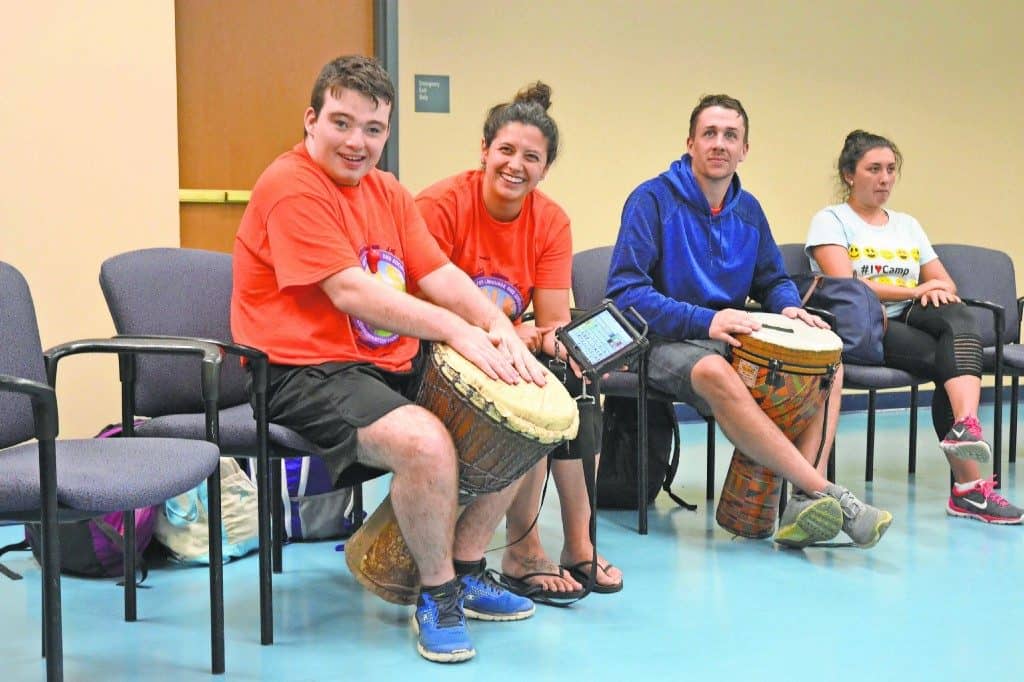
The weeklong camp aims to connect young adults with disabilities
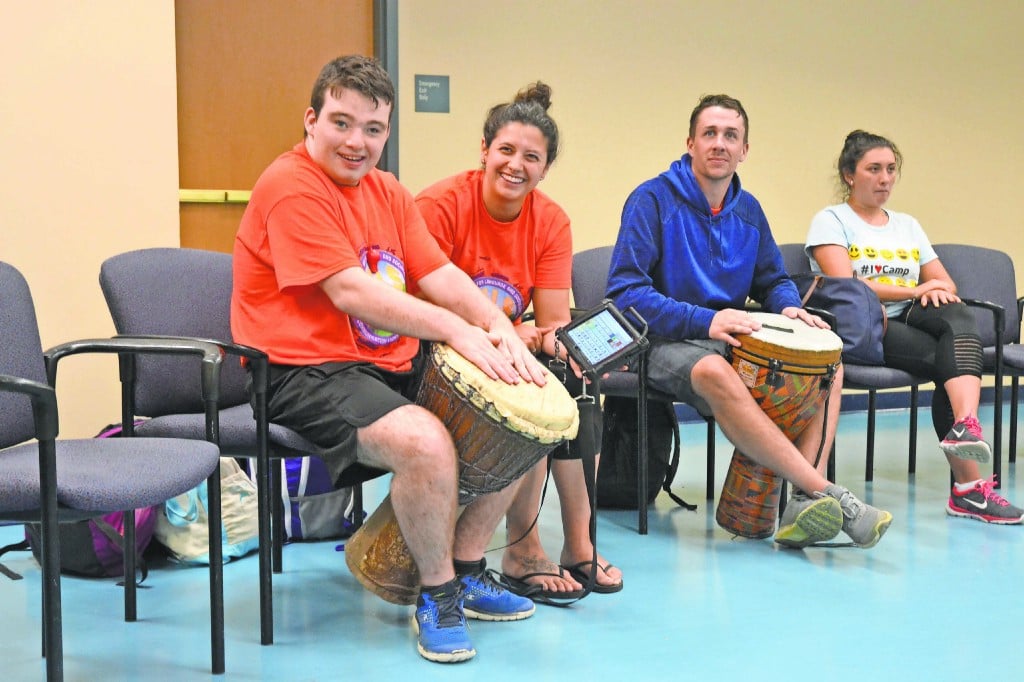
Nearly a dozen teens and young adults with disabilities came to life not long after the music started in a large room at the Katz Jewish Community Center.
Music is a big part of the P.A.L.S. Summer Program, which for the sixth year brought nonverbal adolescents and young adults who use augmentative communication devices to Cherry Hill for a weeklong camp.
“There’s just something about music that pulls everybody from all walks of life together,” said Donna Forman, of Cherry Hill, who started P.A.L.S. “They just all enjoy it. All inhibitions go away.”
That was evident on Tuesday, Aug. 14, during a session led by Eddie Rosado of Folkloric Heritage, a Cherry Hill-based group whose mission is to introduce people to Latin American and Caribbean music and customs.
After Rosado started a drumming a beat, many of the program’s participants, who range in age from 15 to 25, followed along on their own drums. Several jumped and began dancing.
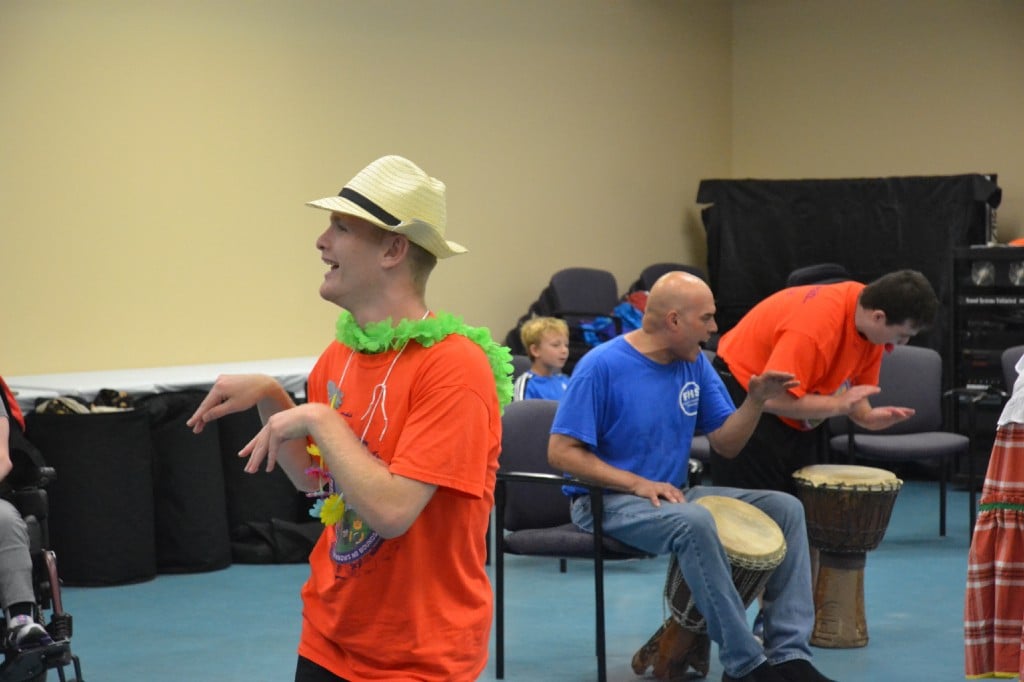
Laura Reynolds, of All Together Now, a music-based nonprofit involved in the camp, said music is universal and accessible for people with disabilities that make them nonverbal.
“A lot of them have a whole lot of energy and not a lot of appropriate ways to get it out,” Reynolds said.
This year’s program, which concluded Friday, Aug. 16, featured a world cultures and travel theme. Tuesday was Caribbean Island Day, and other days from the camp featured music from Ireland and Israel.
“We chose the countries by their music because they love music,” said Diane Grosso, of Marlton, a retired teacher who helps organize the program.
Each day of the camp, Reynolds and her wife, Nicole Reynolds, brought instruments to the JCC and worked with the participants.
“They get to feel and play nice instruments that they normally wouldn’t have access to probably,” Nicole said. “We try to make it adaptive based on different levels.”
Nicole and Laura said they typically bring a variety of instruments because they never know what will spark a camper’s interest.
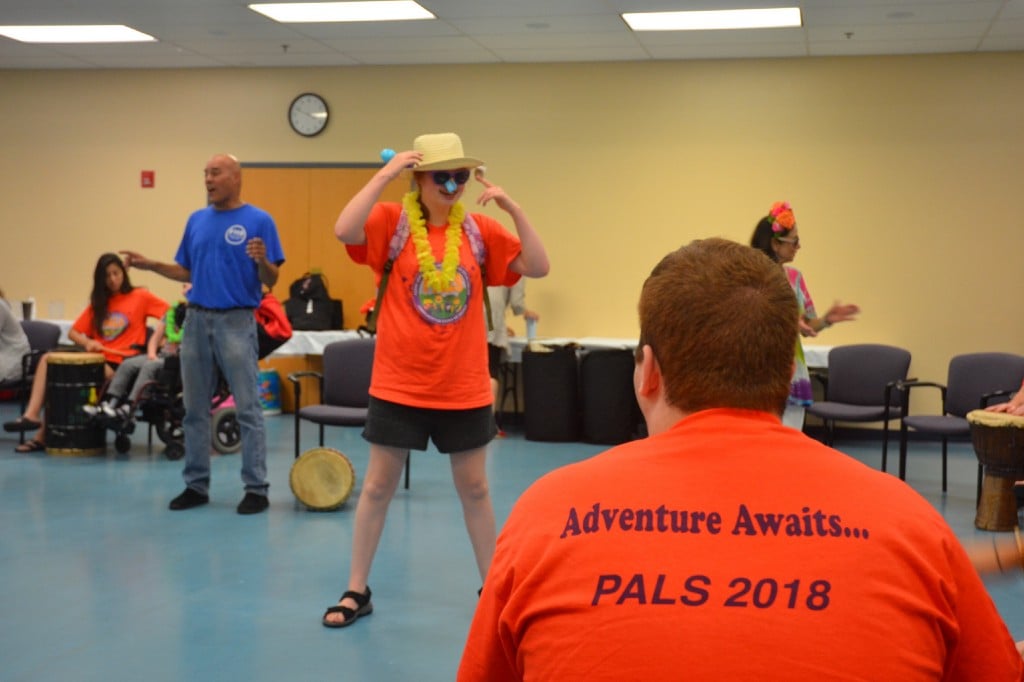
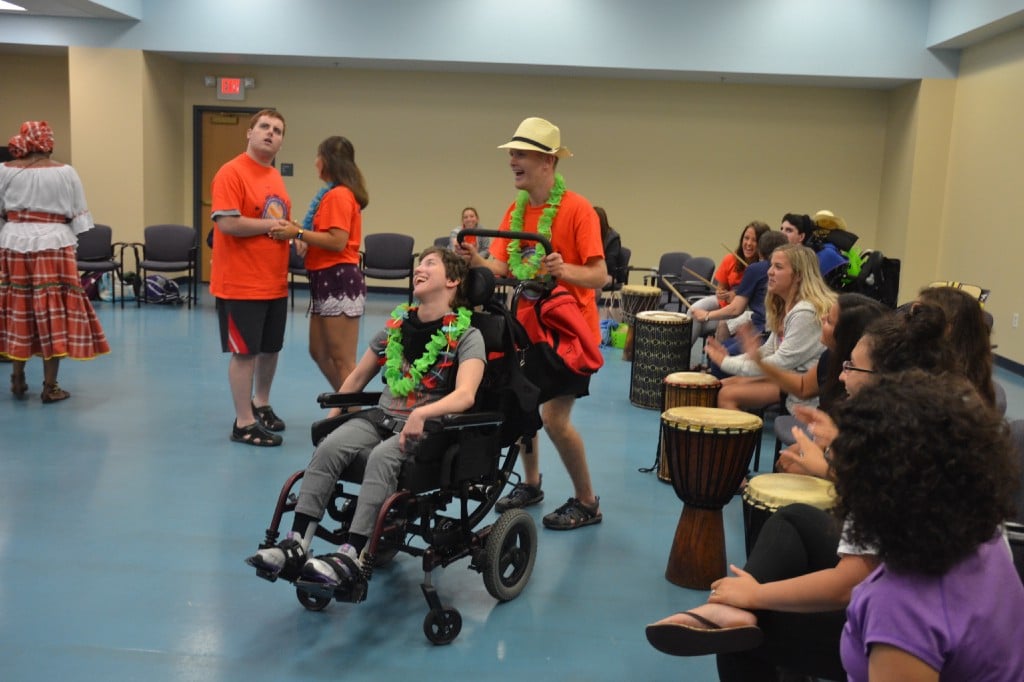
In addition to music sessions, the 11 teens and young adults in the P.A.L.S. program also participate in swimming and arts and crafts lessons.
A big part of the program is giving the participants the opportunity to socialize with others who also struggle to communicate. That’s what makes P.A.L.S. stand out, several people involved with the camp said.
“This program is unique in that it is young adults who use AAC (augmentative and alternative communication) together communicating,” said Priscilla Danielson, an AAC expert and consultant.
Danielson travels every year from Maryland to volunteer at the camp. She said the week gives the participants a voice — something they rarely get the chance to show otherwise.
“You can count on one hand the programs like this in the country,” she added. “They are few and far between.”
Forman’s 21-year-old daughter Sydney Forman is part of P.A.L.S and the reason the speech pathologist and advocate started the camp. She said she has seen the benefit of Sydney socializing with other young people with special needs.
“There’s nothing better in the world,” Donna Forman said. “I did feel like she was very alone and isolated.”









